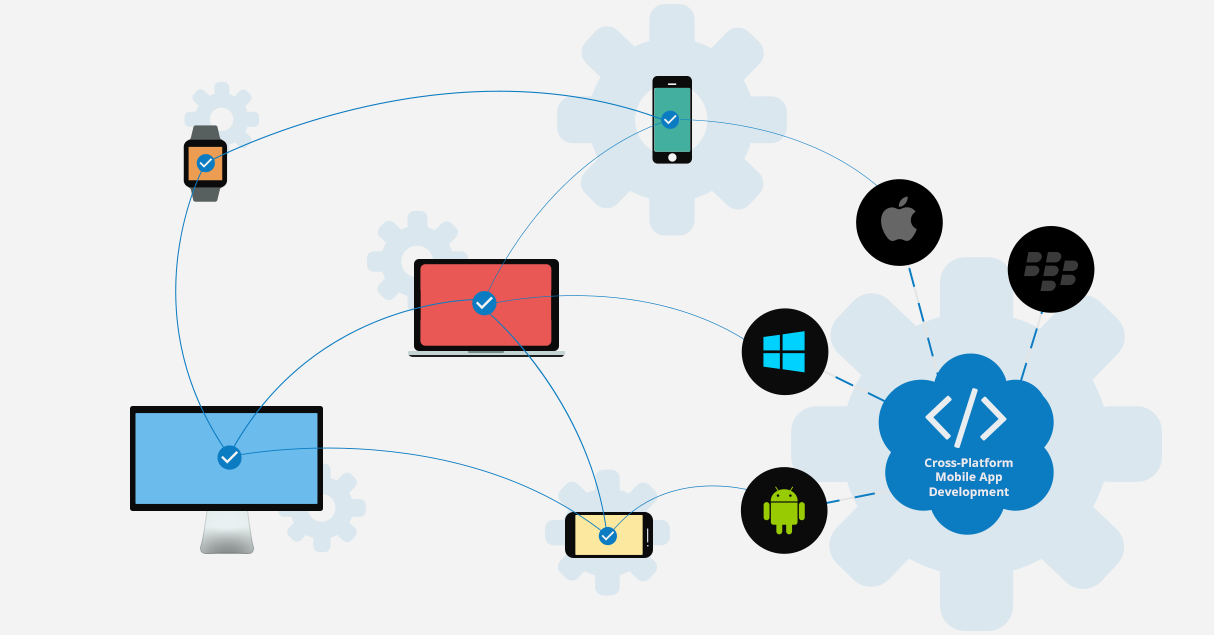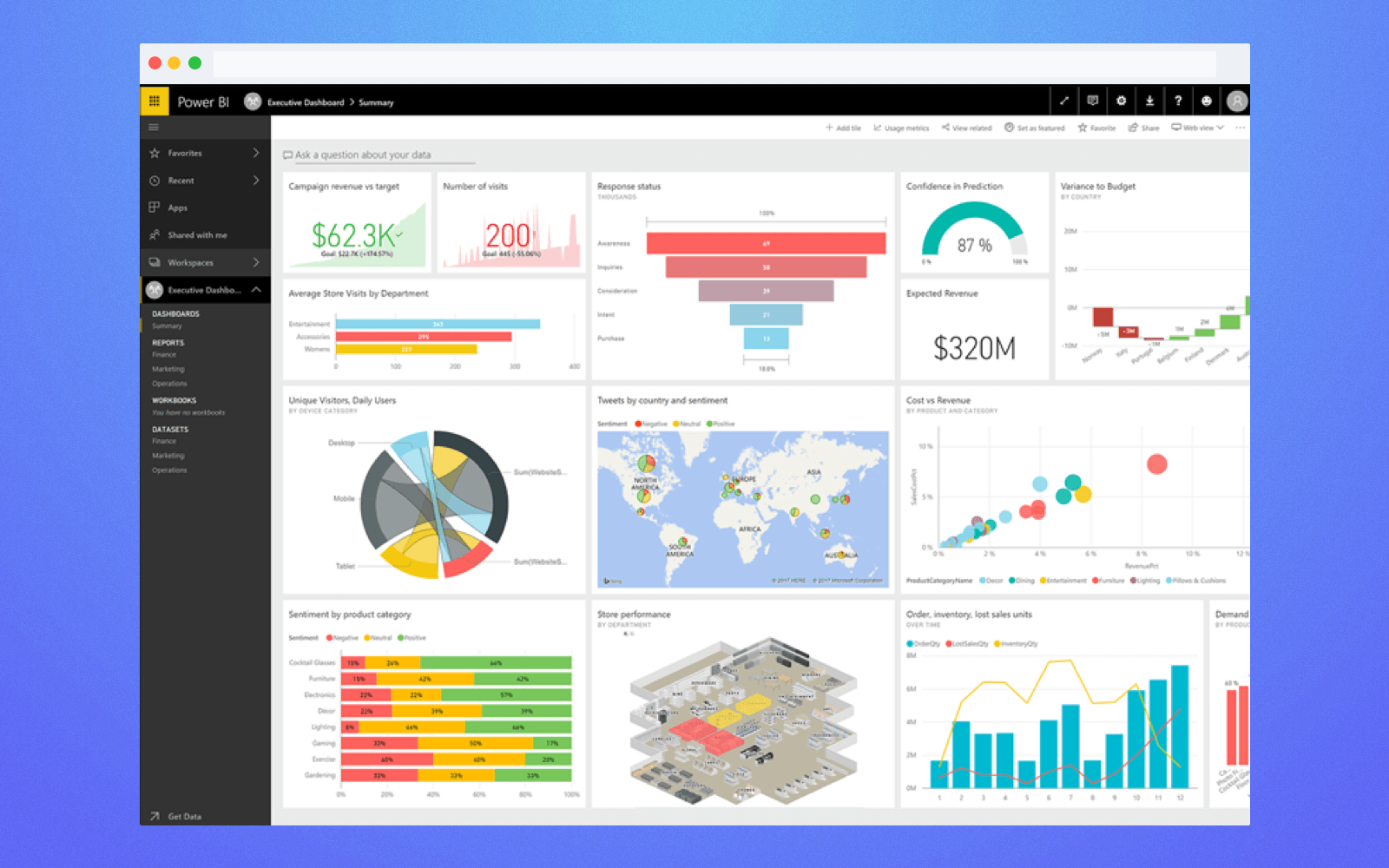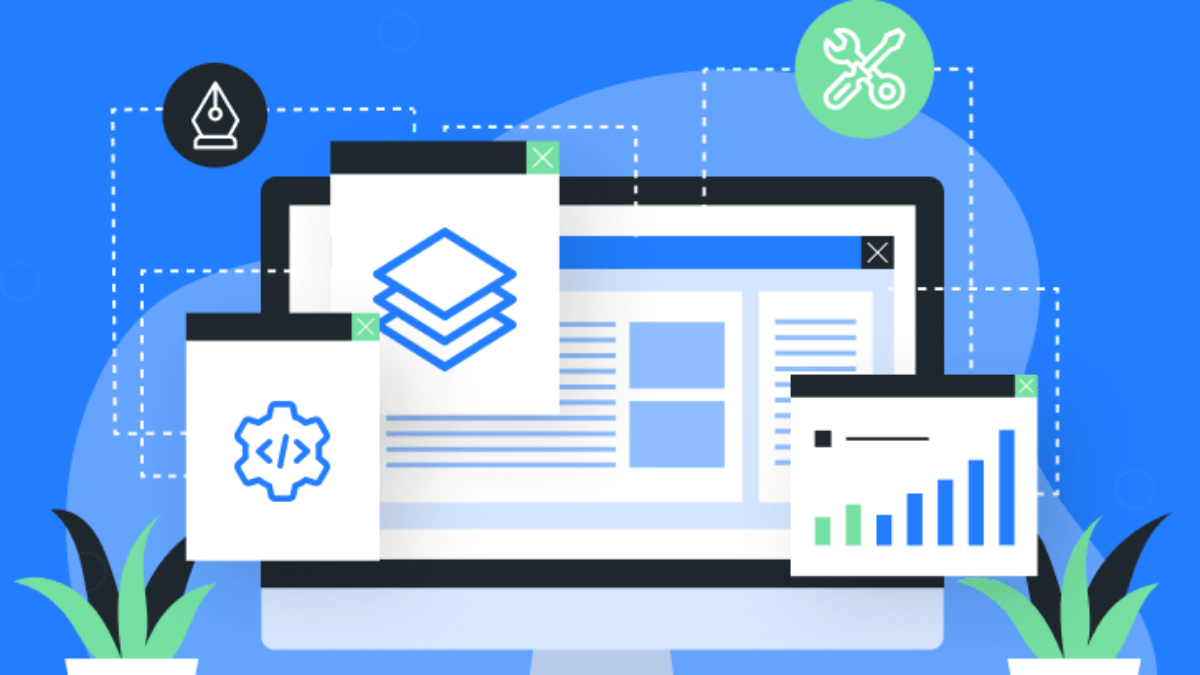In this modern age where businesses are globally run through the digital landscape, software applications stand out in bridging the gaps between work productivity and work deliverance. Among a vast variety of software applications, two software programs have been the talk of the town, Web Application and Enterprise Application. Both applications play a pivotal role in the digital world and carry out unique purposes that enhance the overall productivity of business and target the right audience.
Differences between web apps and enterprise apps
Web apps are the front lines of the internet space. This application is easily run on a web browser with an internet connection. You can easily have access to it without having to install it as the web application is run on the web browser. It can be easily used anywhere with a strong internet connection. Our applications are business-friendly tools and users interact with companies through online forms, content management systems, shopping carts, etc.
An Enterprise application is a type of software application that works quietly but on a large scale. Enterprise app works to help large businesses and organization, and it is designed to meet the specific needs and requirements of such institutions. These applications are complex and provide a wide range of features. Some examples of enterprise applications include human resources management systems, proper use of available resources, customer relationship management systems, and supply chain management systems.
Web applications and Enterprise applications differ in their core functions and purpose. They both are distinct software applications that work effectively in different business domains. While web apps are accessed using the web browser over the internet, enterprise apps address the whole organization and do not target a single individual. Enterprise apps have a complex and more pronounced function with more features as compared to enterprise apps. Also, enterprise apps work to meet specific goals while web apps work in a more generalized environment.
Roles in modern business environments
Talking about web apps, have a pivotal role in business management as they are easily accessed over a web browser by a user. In businesses, web apps provide platforms to create and share content, run online advertising campaigns, and collect valuable customer data. Web apps also enhance customer engagement and increase the overall reach of the audience. They provide a safe upfront environment where the user can interact with the audience and promote, enhance, and showcase their businesses and services.
E-commerce websites, social media platforms, and content delivery systems are prime examples of web apps that empower businesses to connect with their audiences in an accessible and user-friendly manner. Web apps provide remarkable customer support functions helping the users enhance customer satisfaction, streamline support processes, and reduce operational costs, creating a positive impact on the bottom line.
In addition, Enterprise apps are designed to meet the specific needs and goals of an organization all the while providing various functions. These apps usually focus on the internal outlook. They serve as the backbone of an organization, helping manage day-to-day activities efficiently and securely.
Enterprise apps are designed with high security that protects and safeguards large amounts of sensitive data that belong to the user organizations. The enterprise app provides the reliability and flexibility needed to support critical business processes, even when the environment is compromised or challenged. This software application when effectively integrated and utilized, contributes to the overall success and competitiveness of a modern business.
Web apps focus on customer engagement, outreach, marketing, and accessibility, while enterprise apps streamline internal operations, prioritize data security, and support specialized organizational needs. Enterprise apps focus on internal operations and work to enhance security and support organizations that need an uplifting.
Factors influencing between Web apps and Enterprise Apps
Many factors influence when you come to discuss business or trade using digital tools. There are a lot of things to consider before deciding on Web apps or Enterprise apps. The decision-making process is difficult as there are both advantages and limitations to both software programs.
Let’s explore some of these factors about web apps and enterprise apps:
1. Cross Platform
Web apps can function across a broad variety of platforms as compared to enterprise apps that work for specific modules. Web apps can work on any browser and anywhere regardless of the operating system. The enterprise apps require specific platforms that may not be accessible to all easily and may not work on all devices.

2. Security and Data Privacy
Security and data privacy plays a crucial part in any organization or business setup. Web apps provide high security and work on strong privacy guidelines whereas they are vulnerable to certain digital attacks. On the other hand, enterprise apps lack high security and privacy and can work better on data privacy and device-level security.

3. Performance
As web apps need internet and web browsers to run, any connectivity issue or challenge can make a bridge in the performance of such applications. Good connectivity is required to run smoother access while using the web apps. Enterprise apps work at high speed and performance because they are designed to work on particular operating systems and specific devices, giving a smoother performance and integration.

4. Maintenance
Web applications are designed to target multiple platforms with the same code bases however enterprise apps do not work like that. Enterprise apps are more expensive and require time to develop. Web apps require continuous updates to align with the standards of web compatibility and require more maintenance to work effectively.

5. User Experience and Customization
When it comes down to user experience and customization, enterprise apps are way ahead of web apps. Since web apps use the same code bases for all platforms they are harder to customize and make effective changes. While the enterprise apps are specifically tailored for specific platforms and guarantee remarkable customizations, giving users a better business experience.

Web Apps Explained
Web apps are designed to universally serve users. To effectively use a web app you can open the web browser as an interface perform all of the expected content creation and use it as a productivity tool for business purposes. Our apps are designed to perform various functions across multitudes of platforms.
Web applications require a smaller time frame and resources for their generation. Unlike native applications, web applications work in a client-server architecture with distributed application layers. The functional network involved in a web application would be a web server, application server, and database.
Our applications allow you to perform various tasks over the internet without actually having to install them. Web apps use a combination of server and client-side scripts to complete the tasks. When used for business purposes, web apps store data, carry out transactions, engage with the audience, and represent information. To connect with the audience and carry out a potentially effective business, web apps are the key to success as these are designed to meet business goals.
Architecture, development, and deployment
1. Development
The development of web apps is a dynamic process and encompasses the development of software applications accessible and usable by users via web browsers on the internet. To construct web applications, developers must take into account numerous orders of development, diverse architectural design, and deployment tactics.
2. Architecture
The web app architecture is the interaction between the applications, databases, and middleware systems, defining how they interact together. The architecture makes sure that all systems in action work simultaneously with each other and store valid data. When decision-making regarding the aspect of your company, make sure you choose that the app aligns with the growth of your company, visions, and reliability.
Components of web app architecture
There are 3 major core components of the web app architecture and that includes:
- Web browser
- Web server
- Database server
Types of Web App Architecture
There are some important types of web app architecture:
- Monolithic architecture
- Micro services architecture
- Server less architecture
3. Deployment
There are various hosting options for deploying web applications. Cloud providers like AWS, Azure, Google Cloud, and platforms like Heroku, Netlify, and Vercel offer infrastructure and services for hosting web applications. These services provide scalability and effective usage. The deployment services of web applications have changed significantly over the period. Security is one aspect that is most looked up in the deployment process and developers should apply data privacy and safety practices during authentication processes.
For successful web application development, it is necessary to plan out a thorough deployment strategy that works to improve the security, scalability, and reliability for a better user experience.
Benefits and limitations of web apps
Web apps are gaining huge popularity in a relatively short amount of time because of their versatile functions and fast-paced services.
Advantages
- Cost-effective: Web apps are cost-effective and provide resourceful benefits. This service is way cheaper and easy to use over the Internet. Operations could be carried out with effort and consuming less time.
- Up-to-date: As web apps can be accessed by a multitude of platforms at the same time, no extra updates are needed to run the program. The same updated version is consumed by all users without the development of extra versions and updating tactics.
- Easy Usage: Easy usage is one of the vital features of web apps as these applications are designed to run the overall operating system easily without needing to install them. With only the need for an internet connection and a web browser, the users can easily run various tasks.
Limitations
1. Internet Reliability
The web apps cannot function without an internet connection. These services are only run on web browsers over the internet hence without a reliable internet connection, do not function. Therefore, a reliable internet connection is a must at all times to browse through the website and run the app.
2. Speed limitations
Web apps can slow down and affect performance if the internet connection quality is compromised. As web apps can be used by all users over the internet, the speed and performance are often compromised.
3. Less secure
Web applications often lack high-quality control mechanisms that directly result in diminished safety of data and information of the users. Web apps are often vulnerable to digital attacks relative to other software programs.
Enterprise Apps Unveiled
Enterprise apps are specifically designed for large businesses and vast-scale organizations. Enterprise apps are the type of software that have various complex features and functions. These features are meant to help businesses with effective and enhanced operations to improve efficiency and make better decisions. Enterprise applications are used by a large population of employees of an organization and help integrate with other business systems.
Enterprise app services show their significance in different aspects of the business world. Enterprise apps provide communication tools and enhance productivity which facilitates better teamwork even in geographically displaced teams. This feature leads to better coordination, collaboration, and management.
Enterprise apps show significance in data management as well. Enterprise Data Management, provide storage, collection, and analysis of vast amount of data and decision-making to help business organization. The integral tools of this application build customer-user relationships. These apps help businesses encourage engagement with the targeted audience and provide personalized advances. Enterprise apps are not only internal tools but also extend to customer-facing applications. These apps help businesses engage with their customers, provide personalized services, and enhance the overall customer experience. For example, e-commerce platforms, mobile banking apps, and customer service portals are examples of enterprise apps that directly impact customer engagement.
Analysis of complex requirements of enterprise-level software
Enterprise applications place high demand on performance and its development often involves dealing with complex requirements to meet the diverse needs of organizations.
Listed below are some of the most required elements of this software to run effectively within a business and organization.
- Performance and Scalability
- Quality assurance and testing
- Software architecture
- Flexibility
- Performance optimization
- Reporting and Analysis
Scalability, security, and integration aspects
1. Scalability
Enterprise software is required to handle large amounts of data and is required to be able to scale up and down as demanded by the user. Enterprise apps should be able to manage the growth of an organization and must be able to scale increased user loads, data volumes, and user transactions. Scalability is particularly important when an increase or decrease in data usage is observed in an organization and is challenging to implement at times.
2. Security
Security is a huge concern when enterprise application is discussed. The software must incorporate high privacy and security features to protect user’s sensitive data and manage the privacy of organizations and business
3. Integration
Companies linked with enterprise apps use other systems and software and this creates integrations within organizations and outside of organizations as well. It is important to keep compatibility in mind when figuring out the exchange of data between such software and applications.
Choosing the right solution
Choosing the right solution between both software applications is a critical task and requires vigilant decision-making. This decision-making depends on various factors that are different for each organization and vary according to the needs of the organization. Follow the steps to make decisions for the betterment of your organization:
- Define objectives
- Evaluate budget
- Accessibility of application
- Security
- Customization
- Support and maintenance
- User experience
- Consultation with experts
Framework for selecting between web apps and enterprise apps
Choosing the best web development framework makes it easier for organizations to boost their business and enhance credibility. This means you will be able to provide seamless digital solutions to satisfy end customers’ daily tasks through remarkable digital software programs.
Here’s a decision framework you need to keep in mind while selecting the best application for your business.
- Consider your needs
- Research the applications thoroughly
- Evaluate features
- Test out the features
- Compare prices
Cost-benefit analysis for your specific business context
When conducting a cost-benefit analysis for your business it is important to keep the following things in mind,
- Brainstorm
- Assign monetary values to the cost
- Assign monetary values to benefits
- Compare costs and benefits
- Analyze them
It is also important to keep in mind the scalability, compatibility, ease of use, and support management that works for your business.
Conclusion
The digital landscape is a continuously evolving process. In this rising era of collaboration and remote work, virtual interactions are soaring high in the sky. Progressive Web Apps are gaining attention by offering diverse experiences in web browsers. The new trends in the digital world are moving towards a more hybrid technology that combines the flexibility and adaptability of web apps and the security and performance of enterprise apps. Additionally, AI and ML integration, robust security measures, mobile optimization, and sustainability considerations are key factors influencing the development of both web and enterprise apps. Markets are growing more competitive with new updates and changes every day to provide better experiences to organizations that create dynamics and advancements.







